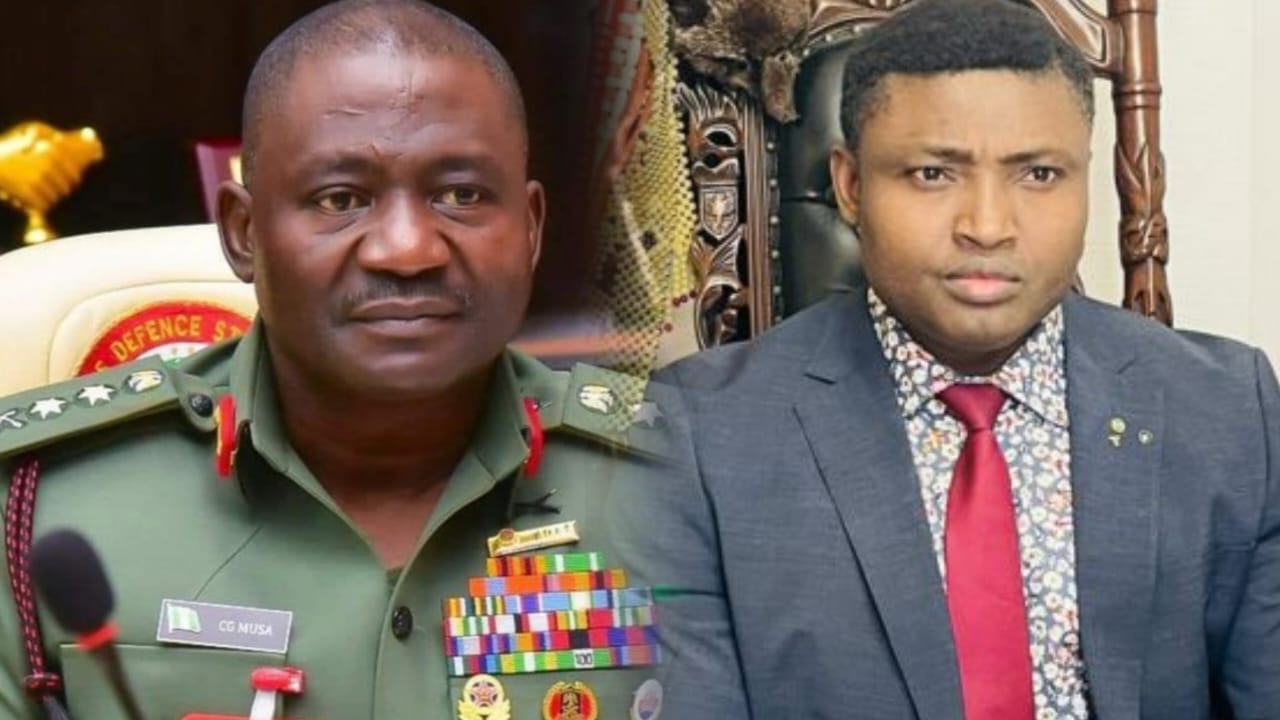Headlines
CDS Musa Calls for Immediate Arrest and Prosecution of Simon Ekpa

General Christopher Musa, the Chief of Defence Staff, has accused Finland of providing protection to Simon Ekpa, a self-proclaimed Prime Minister of the proscribed Indigenous People of Biafra (IPOB).
During a special broadcast on Channels Television to commemorate Nigeria’s 25th Democracy Day in Abuja, Musa expressed his concerns about the activities of IPOB in the South-East and urged for the arrest and prosecution of Ekpa.
He emphasised the need for the Nigerian government to take decisive action, including diplomatic measures, to address the threat posed by the factional leader of IPOB.
Musa highlighted the support Ekpa is receiving from the Finnish government and the alarming consequences of his actions, calling for urgent intervention to prevent further violence.
Furthermore, he emphasised the importance of diplomatic efforts to ensure Ekpa’s arrest and prosecution, stressing that such actions are essential to uphold democracy and maintain peace in the region.
Additionally, Musa discussed the success of the military’s deradicalization programme for repentant terrorists in the North-East, noting that the initiative has been effective in achieving its objectives.
Prior to commencement and their willingness to surrender, the states assumed leadership, and we subsequently followed suit. All those who surrendered initially approached the nearest security forces. They were disarmed, and we engaged the DSS to conduct profiling.
The state government oversaw the management of these individuals, and we transported them to designated camps. Through our efforts, we were able to categorise them and discover that not all were combatants. Some were coerced, while others were utilised as labourers.
Additionally, Musa discussed the success of the military’s deradicalization programme for repentant terrorists in the North-East, noting that the initiative has been effective in achieving its objectives.
Prior to commencement and their willingness to surrender, the states assumed leadership, and we subsequently followed suit. All those who surrendered initially approached the nearest security forces. They were disarmed, and we engaged the DSS to conduct profiling.
The state government oversaw the management of these individuals, and we transported them to designated camps. Through our efforts, we were able to categorise them and discover that not all were combatants. Some were coerced, while others were utilised as labourers.
The primary perpetrators were segregated and collaborated closely with the victims.
